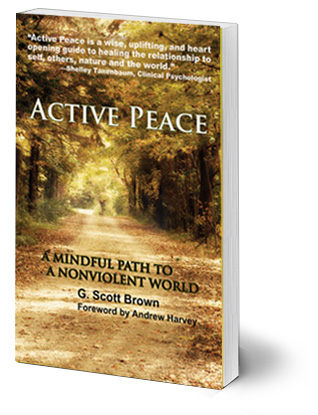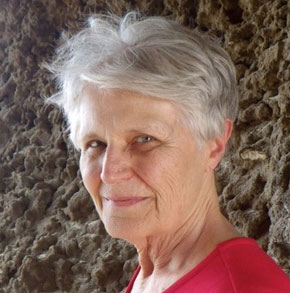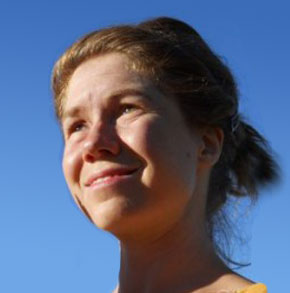Active Peace: A Mindful Path to a Nonviolent World

Greetings,
Active Peace offers a holistic approach to the deepest levels of healing at the personal, interpersonal, and collective levels. It includes much in the way of self-understanding and self-care, practices for feeling the support the earth, and a toolbox full of relationship skills. You’ll find the foundations for transforming conflict into deeper relationships, including the principles and practices of restorative justice. The end result is a big picture view and an integration of core capacities that help sustain a life of joyful connection to the Love and life energy that holds us here. Get the paperback here and say “Yes” to the Great Adventure of our time!
Active Peace Book Review by Carolyn Baker
 Long-time activist, Scott Brown is a seasoned advocate and organizer for social justice, but he brings more to his work than a passion for peace and fairness. Like many activists, Scott lived his vision of social justice from the neck up until one day when his life fell apart, he was compelled to expand the personal reach of his activism to the heart and belly. In the process, Scott learned that authentic and effective activism is a “whole-body experience.”
Long-time activist, Scott Brown is a seasoned advocate and organizer for social justice, but he brings more to his work than a passion for peace and fairness. Like many activists, Scott lived his vision of social justice from the neck up until one day when his life fell apart, he was compelled to expand the personal reach of his activism to the heart and belly. In the process, Scott learned that authentic and effective activism is a “whole-body experience.”
In Active Peace: A Mindful Path To A Nonviolent World, Scott Brown invites the reader to consider how large the activism landscape actually is, and the root cause of everything the activist dreams of healing has its root in one reality: The illusion of separation. Most activists would agree that injustice issues from a separation from each other and from the Earth community, but few fully understand the momentous barrier that separation from oneself poses. In fact, Scott ventures to assert that activism isn’t genuinely restorative unless the activist is being healed. But healed from what?
Perhaps most ubiquitous is our mind-less-ness—our lack of consciousness of our psychospiritual selves. It is through developing mindfulness, Scott Brown argues, that we become whole. “Mindfulness is the orientation that ties the threads together and creates endless opportunities to experience interrelatedness in our day-to-day lives…What we are after here, ultimately, is psychological and spiritual development leading to an expanded sense of self.” (6) Humbling indeed, Scott asserts, is his experience of spending fifteen years as an environmental campaigner without the basic life-changing tool of mindfulness.
While the book’s title Active Peace may imply that this book is mostly about peacemaking and living harmoniously with other beings, it is important to understand that the kind of peacemaking Scott Brown has in mind is fiercely active, committed to self-exploration and personal transformation, and employing restorative justice in the world. Without these, the author declares, peace is not possible.
For the author, to restore, means to “make firm again.” For the activist/mythologist, Michael Meade, restore means to “re-story” or to find the new story that mirrors our predicament. The old story, of course, is that we are separate beings, disconnected from ourselves, each other, and Earth, and the new story, resounding and reverberating throughout Active Peace, is the new story of relationship.
Many activists proudly proclaim their atheist predilections and have no interest in words such as God, the Divine, the Great Spirit, or the sacred. Scott Brown is not attached to any particular words to describe the spiritual essence that he believes lies at our core and at the core of all that is. Nevertheless, he asks the activist to consider that the principles that drive one’s activism have their roots in that spiritual essence. Human history, he points out, is a very long story of how we have become separate from that essence. From the shift from hunter-gathering to agrarian living to the influence of the Judeo-Christian tradition of sin and separateness to the scientific revolution to our current obsession with technology as savior, “The belief in separateness leads directly to violence,” says Scott. In fact, “To fully appreciate what the belief in separateness has wrought, it will be helpful to look in more detail at the two most basic ways it shows up in our lives: The human/nature split and the human/spirit split.” (23) Scott explores these two splits and how they arose, and very importantly, how we can heal them.
He offers four foundations for Active Peace and a Nonviolent World: The restoration of our relationship to the world, to ourselves, to others, and to Nature using restorative activism, mindfulness, interpersonal skills, and Nature-based practices. As a result, we discover Interbeing—the notion and the felt experience of interconnectedness with all of life.
Active Peace outlines and explains the Five R’s of Restorative Justice: Responsibility, Respect, Relationship, Repair, and Reintegration. It is, as Scott points out, “…what justice looks like beyond the illusion of separation.” (149) He also brilliantly addresses the shadow side of activism—the lack of self-awareness that leads to unprocessed grief, self-righteousness, and a failure to see the larger picture systemically. From my own experience I notice that one of the most common and formidable obstacles in activism is one’s unwillingness to grieve. It is far easier to be consumed with the fires of activism which guarantees burnout and even aggression. However, if the fires of activism are not tempered with the water of tears, burnout is certain. Whereas activists often confess that they are concerned that if they allow the waters of grief to flow, they will become passive and ineffectual. In fact, as Active Peace argues and my own experience attests, deep grieving in a safe and supportive container, actually strengthens one’s commitment to activism and restorative justice.
Transpersonal activism is the focus of Active Peace, and the book offers a number of practices for vibrant, mindful, compassionate peacemaking. None of it is about giving up or abandoning the struggle. All of it is about deepening one’s commitment to restorative justice, mindful activism, and the surrender of outcome—to be sure, a struggle, but also profoundly natural, for as Scott Brown reminds us, “Making peace is the most natural thing in the world once we begin to live into the truth of interbeing.” (196)
Carolyn Baker, Ph.D., is the author of several books including Love in the Age of Ecological Apocalypse: Cultivating The Relationships We Need To Thrive and Collapsing Consciously: Transformational Truths For Turbulent Times.
Active Peace Book Review by Rivera Sun
 Scott Brown’s new book, Active Peace: A Mindful Path to a Nonviolent World, is a startling book. Personal and unflinchingly honest, the writing looks at both the negative effects of separation on our lives and our world, and offers practical steps toward a process of restoration that acknowledges the destruction, harm, and damage takes responsibility for it and strives toward healing and reconciliation. After spending fifteen years in the trenches of environmental organizing, fighting the “good fight” and battling the powers of destruction, Scott’s marriage collapsed, and his life spun out of orbit. Oscillating in confusion, seeking a different way of being in the world, Scott began to see that his activism, life, and worldview were all based on the fundamentally flawed idea of separation. He shifted gears and searched for ways to integrate the concept of “restoration” into resolving social and political conflicts, understanding our self, strengthening our relationships, and connecting with the natural systems of the Earth. The book walks through many layers of applying restorative concepts, including restorative activism. Scott Brown challenges the common attitudes of “winning and losing” and “us vs. them” thinking in working for social and political change. Instead, he offers the model of restorative justice for activists’ consideration. In this model, people involved in the conflict, along with an experienced facilitator, gather in circles, state the harm, express their perspectives, experiences, and emotions; hear from the accused perpetrator and from the victims; process what happened, and come to shared agreements about how to right the wrongs and reconcile the people involved. In Active Peace, Scott Brown asks the simple question: if this process can work for individuals, why wouldn’t it work for something as large as the British Petroleum oil spill in the Gulf of Mexico? Certainly, the truth and reconciliation hearings of South Africa and in certain indigenous communities have offered glimpses of the potential of this approach. Active Peace is not for the faint of heart. It pushes the buttons of our attachments to being right, to winning, to getting our way, to punitive approaches, to making change, and to the habit of making enemies out of people who hold differing opinions than our own. Scott Brown acknowledges that we all live on one small, blue planet spinning through a vast expanse of space. At the end of the day, we’re all still living next to one another. This requires an approach to making change that incorporates that reality. As we have seen so tragically, superficial change that leaves the underlying resentments and animosities seething beneath the surface can have negative consequences for decades. Active Peace offers insights into how to restore what Dr. King called “the beloved community”, and address problems in ways that bring people closer together rather than further apart. Weaving through the whole book is a persistent dedication to the process of restoring our individual and societal relationship to nature. Scott traces historic threads and articulates the deep wounds created by conquest, colonization, patriarchy, separation-based spirituality, and the subsequent wars, violence, genocides, and destruction of the life-sustaining systems of the Earth. He guides the reader through layers of reflections on how we experience the effects of this separation in our lives . . . and how we can reweave our awareness of our inherent bond with the interconnected web of life. He articulates this concept as being integral to addressing all of our issues from the personal to the political. Restorative activism cannot be separated from restorative practices in all aspects of our lives. Throughout Active Peace, Scott Brown offers exercises for inner development, conflict resolution, and personal reflection. He demonstrates how our individual work is deeply connected to our work for social change. He tells stories of his own failures and successes along the road of active peace. He maintains his humanity, and, in so doing, revives ours. This book is an excellent read for everyone, whether you are involved in activism or not. Scott Brown’s writing is engaging and interesting. His exercises on each layer of restorative work are useful and practical to our everyday lives. By the end of the book, one feels a sense of hope and possibility. His comments of the role of restorative work in transforming our lives and world are liberating, empowering, and energizing. He has churned through the turmoil of personal challenges and emerged, phoenix-like, to offer his hard-won understandings to the rest of us who are on the collective path of waging nonviolence and working for change. Rivera Sun is an activist and the author of the Dandelion Insurrection and other inspired works. She co-hosts the Love (and Revolution) Radio podcast.
Scott Brown’s new book, Active Peace: A Mindful Path to a Nonviolent World, is a startling book. Personal and unflinchingly honest, the writing looks at both the negative effects of separation on our lives and our world, and offers practical steps toward a process of restoration that acknowledges the destruction, harm, and damage takes responsibility for it and strives toward healing and reconciliation. After spending fifteen years in the trenches of environmental organizing, fighting the “good fight” and battling the powers of destruction, Scott’s marriage collapsed, and his life spun out of orbit. Oscillating in confusion, seeking a different way of being in the world, Scott began to see that his activism, life, and worldview were all based on the fundamentally flawed idea of separation. He shifted gears and searched for ways to integrate the concept of “restoration” into resolving social and political conflicts, understanding our self, strengthening our relationships, and connecting with the natural systems of the Earth. The book walks through many layers of applying restorative concepts, including restorative activism. Scott Brown challenges the common attitudes of “winning and losing” and “us vs. them” thinking in working for social and political change. Instead, he offers the model of restorative justice for activists’ consideration. In this model, people involved in the conflict, along with an experienced facilitator, gather in circles, state the harm, express their perspectives, experiences, and emotions; hear from the accused perpetrator and from the victims; process what happened, and come to shared agreements about how to right the wrongs and reconcile the people involved. In Active Peace, Scott Brown asks the simple question: if this process can work for individuals, why wouldn’t it work for something as large as the British Petroleum oil spill in the Gulf of Mexico? Certainly, the truth and reconciliation hearings of South Africa and in certain indigenous communities have offered glimpses of the potential of this approach. Active Peace is not for the faint of heart. It pushes the buttons of our attachments to being right, to winning, to getting our way, to punitive approaches, to making change, and to the habit of making enemies out of people who hold differing opinions than our own. Scott Brown acknowledges that we all live on one small, blue planet spinning through a vast expanse of space. At the end of the day, we’re all still living next to one another. This requires an approach to making change that incorporates that reality. As we have seen so tragically, superficial change that leaves the underlying resentments and animosities seething beneath the surface can have negative consequences for decades. Active Peace offers insights into how to restore what Dr. King called “the beloved community”, and address problems in ways that bring people closer together rather than further apart. Weaving through the whole book is a persistent dedication to the process of restoring our individual and societal relationship to nature. Scott traces historic threads and articulates the deep wounds created by conquest, colonization, patriarchy, separation-based spirituality, and the subsequent wars, violence, genocides, and destruction of the life-sustaining systems of the Earth. He guides the reader through layers of reflections on how we experience the effects of this separation in our lives . . . and how we can reweave our awareness of our inherent bond with the interconnected web of life. He articulates this concept as being integral to addressing all of our issues from the personal to the political. Restorative activism cannot be separated from restorative practices in all aspects of our lives. Throughout Active Peace, Scott Brown offers exercises for inner development, conflict resolution, and personal reflection. He demonstrates how our individual work is deeply connected to our work for social change. He tells stories of his own failures and successes along the road of active peace. He maintains his humanity, and, in so doing, revives ours. This book is an excellent read for everyone, whether you are involved in activism or not. Scott Brown’s writing is engaging and interesting. His exercises on each layer of restorative work are useful and practical to our everyday lives. By the end of the book, one feels a sense of hope and possibility. His comments of the role of restorative work in transforming our lives and world are liberating, empowering, and energizing. He has churned through the turmoil of personal challenges and emerged, phoenix-like, to offer his hard-won understandings to the rest of us who are on the collective path of waging nonviolence and working for change. Rivera Sun is an activist and the author of the Dandelion Insurrection and other inspired works. She co-hosts the Love (and Revolution) Radio podcast.
